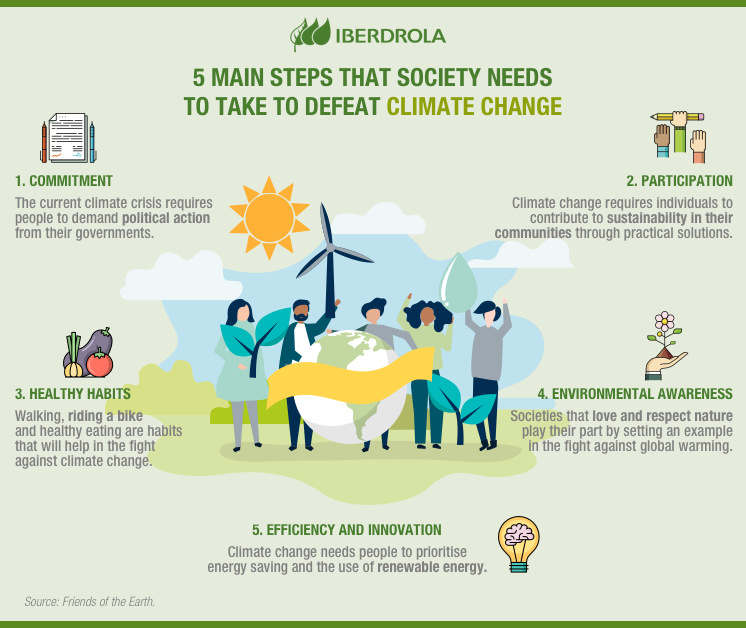Ahmedabad
(Head Office)Address : 506, 3rd EYE THREE (III), Opp. Induben Khakhrawala, Girish Cold Drink Cross Road, CG Road, Navrangpura, Ahmedabad, 380009.
Mobile : 8469231587 / 9586028957
Telephone : 079-40098991
E-mail: dics.upsc@gmail.com

Individual action can help with Climate change mitigation (Editorial)
News: In the recent IPCC report a chapter on “demand, services and social aspects of mitigation” puts people and their well-being at the center of climate change mitigation.
Focus on Demand Side Strategies:
• The report shows that, carbon dioxide and non-carbon GHG emissions globally can be reduced by 40- 70% compared to the 2050 emissions projection.
• It can be achieved through measures such as reduced food wastage, following sustainable healthy dietary choices which acknowledge nutritional needs, adaptive heating and cooling choices for thermal comfort, climate friendly dressing culture, integration of renewable energy in buildings, shifting to electric lightduty vehicles, and to walking, cycling, shared and public transit, compact city design.
• The IPCC report also shows that individuals with high socioeconomic status contribute disproportionately to emissions and have the highest potential for emissions reductions, as citizens, investors, consumers, role models, and professionals.
• Of the 60 actions assessed in this report, on an individual level, the biggest contribution comes from walking and cycling wherever possible and using electricity-powered transport.
Systemic changes can help realize true potential. How?
• For example, land use and urban planning policies to avoid urban sprawl, support for green spaces, reallocation of street spaces for walking and physical exercise, investment in public transport and infrastructure design for active and electric vehicles.
• Electrification and shifts to public transport also brings benefits in terms of improved health, employment opportunities and equality.
• When user-level access is provided to more efficient energy conversion technologies, the need for primary energy can be reduced by 45% by 2050, compared to 2020.
• Demand side changes cannot deliver net-zero goal on their own but it requires investment in and transformation across every sector, along with policies and incentives that encourage people to make low-carbon choices in all aspects of their lives.
• There is huge untapped potential in the near term through changes across transport, industry, buildings, and food that will take away the supply-side uncertainties and make it easier for people to lead lowcarbon lifestyles and, at the same time, improve well-being.
The latest IPCC report is clear that the use of coal globally would have to fall by about 90% by 2050, and gas and oil would need to decline by anywhere from 25 to 50 % or more to give us a chance to limit warming to 1.5 degrees Celsius with no or limited overshoot.
Individual choice alone can make only a modest contribution to reducing GHG emissions and this is insufficient unless it is linked to structural and cultural changes that make it easier for people to lead low-carbon lifestyles.

Address : 506, 3rd EYE THREE (III), Opp. Induben Khakhrawala, Girish Cold Drink Cross Road, CG Road, Navrangpura, Ahmedabad, 380009.
Mobile : 8469231587 / 9586028957
Telephone : 079-40098991
E-mail: dics.upsc@gmail.com
Address: A-306, The Landmark, Urjanagar-1, Opp. Spicy Street, Kudasan – Por Road, Kudasan, Gandhinagar – 382421
Mobile : 9723832444 / 9723932444
E-mail: dics.gnagar@gmail.com
Address: 2nd Floor, 9 Shivali Society, L&T Circle, opp. Ratri Bazar, Karelibaugh, Vadodara, 390018
Mobile : 9725692037 / 9725692054
E-mail: dics.vadodara@gmail.com
Address: 403, Raj Victoria, Opp. Pal Walkway, Near Galaxy Circle, Pal, Surat-394510
Mobile : 8401031583 / 8401031587
E-mail: dics.surat@gmail.com
Address: 303,305 K 158 Complex Above Magson, Sindhubhavan Road Ahmedabad-380059
Mobile : 9974751177 / 8469231587
E-mail: dicssbr@gmail.com
Address: 57/17, 2nd Floor, Old Rajinder Nagar Market, Bada Bazaar Marg, Delhi-60
Mobile : 9104830862 / 9104830865
E-mail: dics.newdelhi@gmail.com